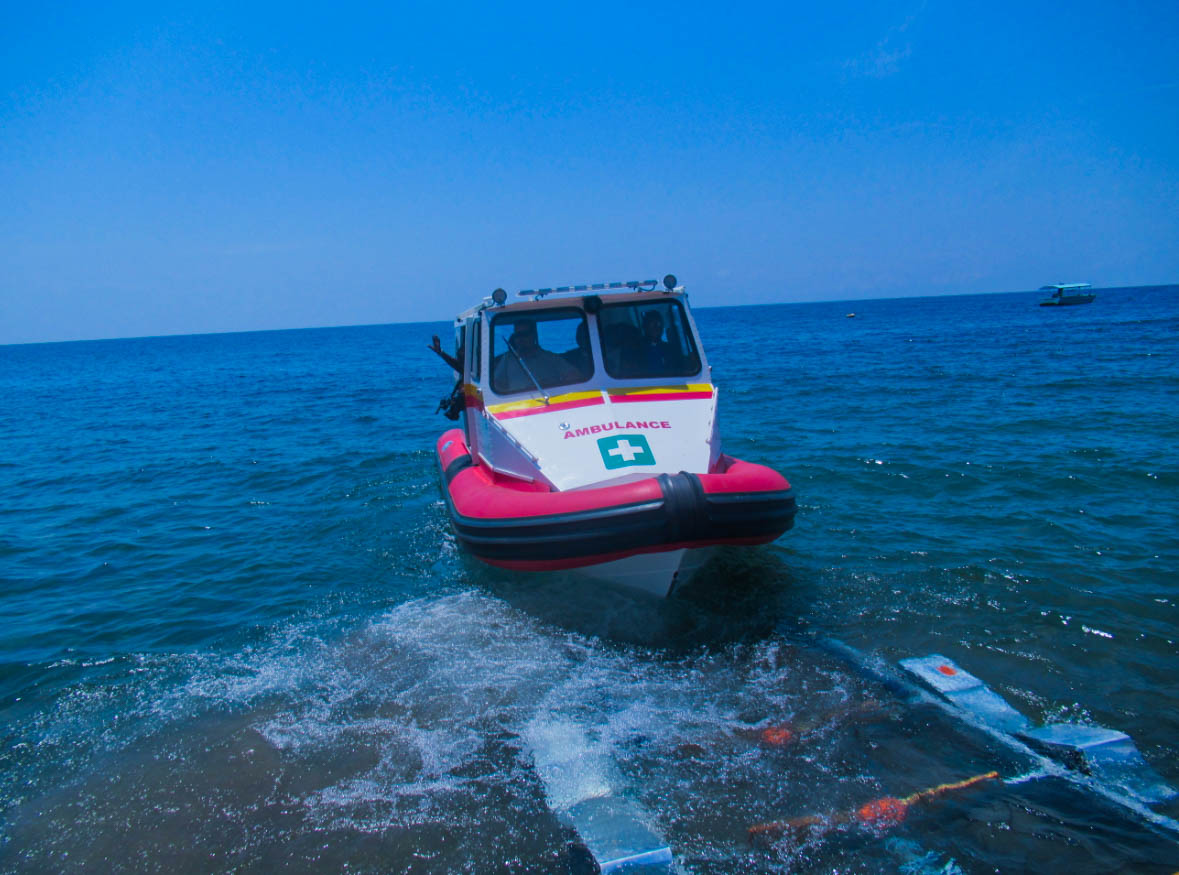By Rabson Kondowe and Feston Malekezo (Lead Writers)
“I thought I was going to die, I nearly gave birth on a ship,” Lucy Chirambo said somberly.
It was in the wee hours of a cold July in 2016 when Chirambo started showing labour signs. Without hesitation, her husband hastily took her to Tchalo Health Centre, run by a church, Church of Central Africa Presbytarian (CCAP) Synod of Livingstonia, in the village of Tchalo, west of Rumphi District in Northern Malawi. Due to the complications in her pregnancy, Chirambo was referred to a better-equipped health facility, David Gordon Memorial Hospital, run by the same church. Getting transportation to the referral hospital was not an easy task.
Tchalo is an isolated peninsula inhabited by over 5000 people along the giant Lake Malawi. Its health centre has a maternity wing and only three health workers. As a result, most pregnant women are referred to David Gordon Memorial Hospital in Livingstonia. To reach the referral hospital, patients have to cross the lake to reach Mlowe, the nearest harbour to the hospital. This takes about two and a half hours to travel by local passenger boats. Mlowe is 40 kilometres away from the hospital. From there, the hospital provides a landcruiser ambulance to take the women to Livingstonia.
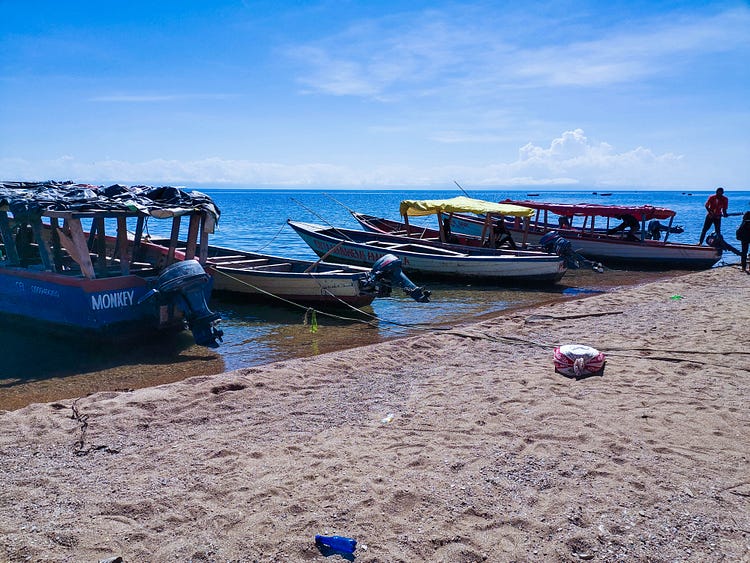
But Chirambo had to travel for close to eight hours because she went on a ship — which is cheaper, but very slow compared to the local boats. “When we reached the nearest harbour, we could not find any boat to take us to the hospital. After waiting for close to three hours, a ship came along and we had no choice but to get on it,” Chirambo said sadly, recalling her experience.
“While on the ship, the labour pain I was having was so severe that when we reached Mlowe harbour, we had to hire a car to make our way to the hospital, which is another two-hour journey. But by the grace of God, we managed to arrive at the hospital and I eventually gave birth to my son,” she said with a smile on her face.
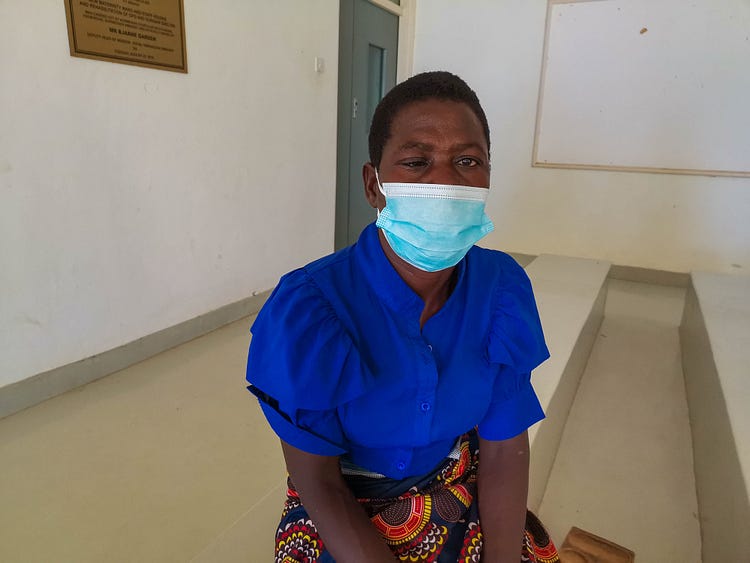
Chirambo, 39, is among a group of pregnant women who have had to rely on the unreliable and deplorable transport system in Tchalo. Due to its location and topography, the closest healthcare centre is very inaccessible for many people in the community.
It is quite expensive to board a local passenger boat from Tchalo to reach Mlowe harbour. It costs around K5000 ($7), a huge sum of money for many Tchalo residents as most of them live on less than a dollar a day. Even worse, hiring a private boat costs over K100,000 ($128).
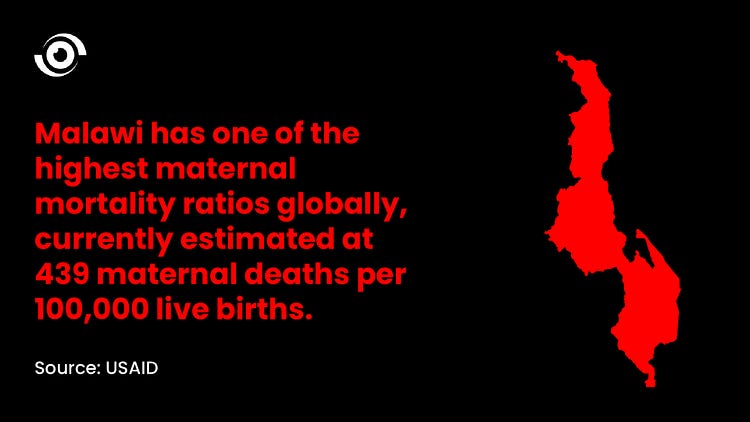
“The delay in receiving prompt medical attention has led to many women delivering their babies while on transit in boats,” says Traditional Authority Chapinduka, the traditional leader of Tchalo. He says that between 2002 and 2012, the area registered the highest number of maternal deaths due to mobility challenges. Malawi has one of the highest maternal mortality ratios globally, currently estimated at 439 maternal deaths per 100,000 live births. The leading cause of maternal mortality in Malawi is for indirect reasons, such as pre-existing conditions women may have that are exacerbated by pregnancy.
Moved by the disturbing ordeals expectant mothers go through, in 2017 the church-owned David Gordon Memorial Hospital, through the help of a UK Non-Profit Organisation, EMMS International, bought a 7-seater ambulance speedboat costing K53,571,960 ($68,682) and a road ambulance at a cost of K26,785,989 ($34,341), with the sole purpose of transporting women safely to the health facility. The women use these ambulances for free.
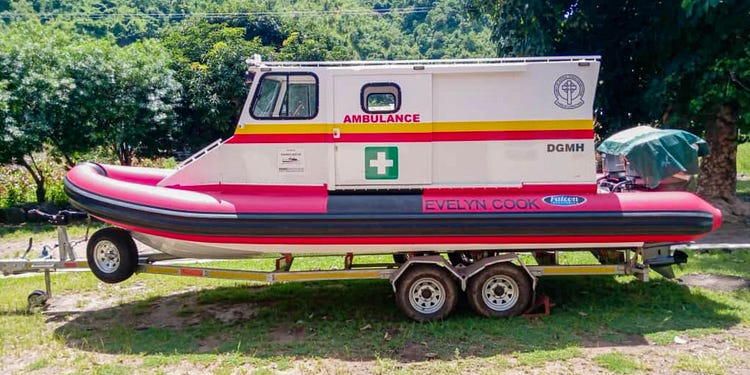
Both ambulances were bought under the Nyanja Health Project, a project focused on improving quality health care services for people living in the lakeside districts of Malawi. Nyanja means ‘lake’, and the project was implemented to improve the quality of healthcare to 50,000 people living in the lakeside districts of Karonga, Rumphi and Nkhata Bay, by providing ambulances to health centres in these districts, renovating the health centres and training women from these areas to become health care workers and to return to their villages to improve clinic staffing. The project began in 2017 and ended in August 2020.
“There was a great need for the speedboat and the land cruiser ambulance because pregnant women were finding it difficult to travel on water, and when they reached Mlowe harbour, they had to hire a car to make their way to the hospital. Also, the road to the hospital is very bad. It is steep, dusty and bumpy. From the habour, the hospital is 15 kilometers away,” Anastasia Nyirenda, the transport officer at David Gordon Memorial Hospital, said.
Nyirenda said the speedboat and the land cruiser ambulance have played a significant role in ensuring that pregnant women receive medical care on time.
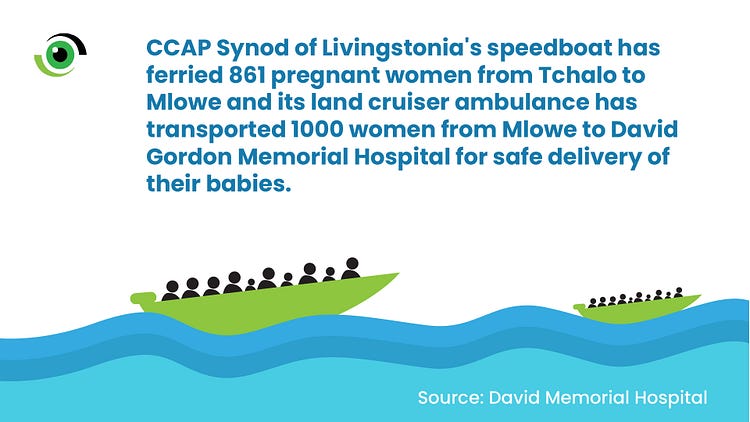
According to the hospital’s data, the health facility has managed to safely transport 1,861 expectant women since the two ambulances were bought in 2017. The speedboat has ferried 861 pregnant women and the land cruiser ambulance has transported 1000 women from Mlowe to David Gordon Memorial Hospital for safe delivery of their babies.
Twenty-one-year-old Mestard Kondowe who is in the ninth month of her second pregnancy, is a beneficiary of the hospital’s transport system. Kondowe recounted her experience of travelling from Tchalo to the hospital without any challenges to deliver her first baby in 2019. “I am really happy to say that I was ferried on the speedboat. The journey lasted within minutes, I also felt very safe as most boats here are unseaworthy which are prone to accidents,” she said, adding, “When I reached Mlowe I was then taken by an ambulance vehicle and I delivered my first baby.” Kondowe says five of her friends from the village have also benefited from the hospital’s transport service system.
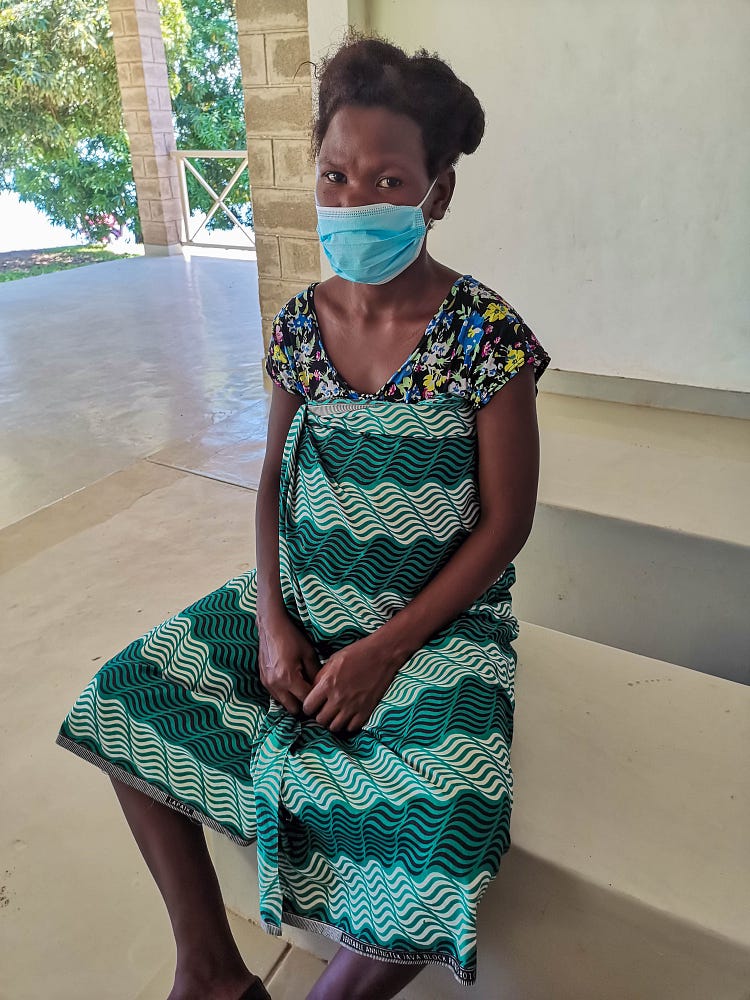
But now the hospital seems to be facing an uphill task with its speedboat ambulance. Following the end of the Nyanja Project about six months ago, which was heavily funded by EMMS International, the hospital is struggling to maintain and provide fuel for the boat. As a result, the boat is now only used once a month.
“For the ambulance vehicle, we are fine, but the challenge is the speedboat. It requires about 150 litres of fuel from Tchalo to Mlowe. This is very expensive and because of this, we decided that the speedboat should only be used once a month,” Nyirenda said. “When women are referred from Tchalo Health Centre to David Gordon Memorial Hospital, we advise them to use local boats. When they arrive at Mlowe, we then take them on our land cruiser ambulance to the hospital.” As such, the speedboat is not quite a sustainable solution and alternative funding models will be needed. This challenge can also be addressed by donor support, however, this may not be a sustainable solution. Most importantly, government intervention is needed as there are no government health facilites in the area of Tchalo and Mlowe.

Spokesperson for Rumphi District Health and Social Services, Bwanalori Mwamlima, said there is a service level agreement that the government signed with the church which runs the health facilities. “We provide the hospitals with some essential drugs, such as those for malaria, for free to the communities. We can only come in to help when the agreement is revisited,” he said.
As with several initiatives, there are challenges, one of which is the non-existence of mobile networks in most parts of Tchalo. Previously, whenever health workers at Tchalo Health Centre had to refer a case to David Gordon Memorial Hospital, they had to sail about 500 meters into the middle of the lake, where there was better network signal, to make a phone call. “But now the hospital has provided us with walkie-talkie radios for easy communication,” Tryness Chisambi, a health worker at the health centre, said. Tchalo also has a persistent water problem, and the only place where people can access tap water is at the health centre where the Livingstonia Synod church installed a water purification system directly from the lake. Usually, people fetch water from the lake, shallow wells and rivers for household use, which is not safe for human consumption.
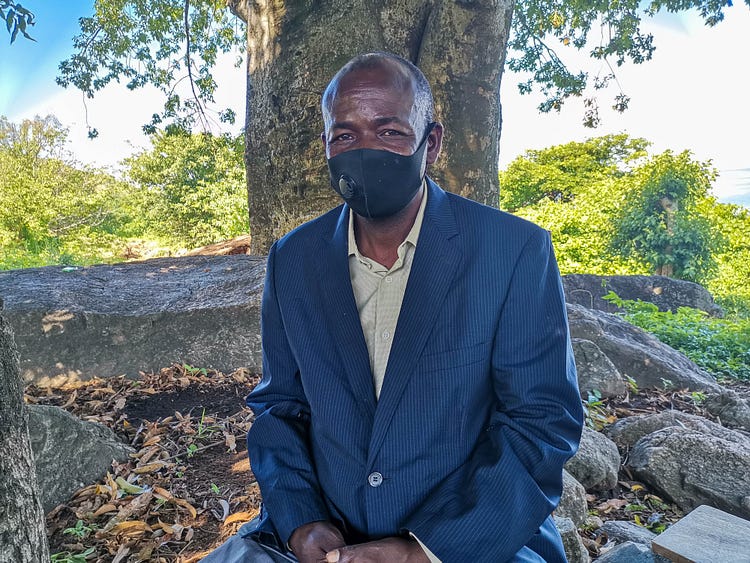
Certainly, in these reclusive areas of Tchalo and Mlowe, there is need for government intervention, by rolling out long-term developmental programs that will transform the living conditions of the residents, who feel forgotten. Malawian women should not have to travel several hours because of the lack of health centres close to them or the poor transport system. While the work that the CCAP Synod of Livingstonia has done with funding from EMMS International is crucial and must be applauded, the overwhelming evidence is that donor projects are not sustainable and the government needs to step in to provide functional health facilities and transport systems to save Malawian women and their babies from dying in childbirth. No woman has to die because she is giving life.


